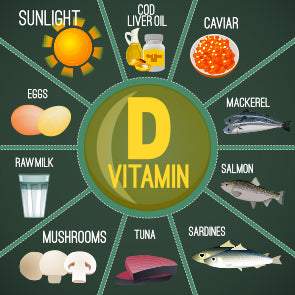Vitamin D has been supplemented by athletes for a number of years, and it is now becoming one of the most popular nutrition supplements in the broader population because of research suggesting it can assist with combatting Covid-19.
For anyone engaged in a high level of physical activity, it is crucial to avoid deficiencies in key vitamins and minerals to maintain a high level of performance.
Healthy levels of vitamin D can support overall fitness and wellbeing in a number of ways. Here are some of the key benefits for athletes.
Supports Bone Health
Vitamin D enhances the way the body absorbs calcium, thereby boosting bone health and density. This is due to the activation of proteins within the intestine that work to absorb calcium. As a result, several studies have found bone injuries are less common in athletes who have sufficient levels of vitamin D. For example, one study examining Finish military recruits found that risk of sustaining a stress fracture was 3.6 times higher in recruits with low levels of vitamin D, and could be reduced by dietary supplementation.
Muscle Function
Short-twitch muscle fibres in particular can suffer when an athlete has a vitamin D deficiency. Research indicates that vitamin D turns on genes that generate muscle growth. Low levels, which can often occur during the winter months, are associated with longer times to peak muscle contraction as well as atrophy.
Avoiding Illness
A common reason for taking a vitamin D supplement is to boost the immune system. Studies show that vitamin D manipulates genes to help defend the body against a wide range of infections. This is particularly important for athletes because it is well known that high-volume and high-intensity training make the body more susceptible to viruses.
Controlling Inflammation
Through its interaction with the immune system, vitamin D helps to control the build-up of inflammation in the cells and tissue. It does this by increasing the production of several anti-inflammatories. Inflammation is often a cause of injury or overtraining syndrome in athletes, so keeping it under control is obviously important to sustainable training.


Share:
5 Ways To Set Your Circadian Rhythm For Better Sleep
5 Ways Athletes Can Improve Fitness When Working From Home